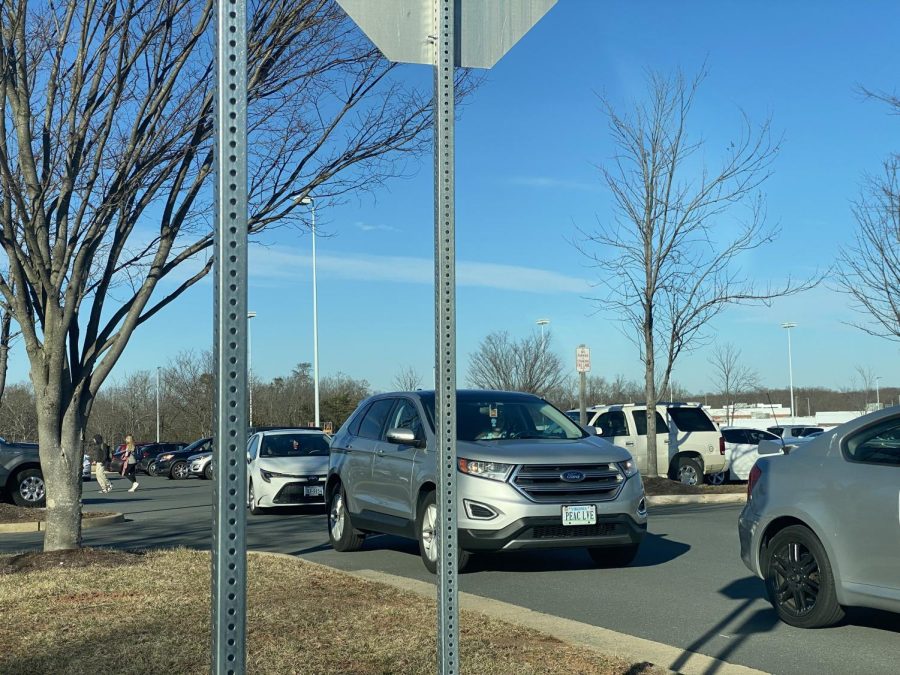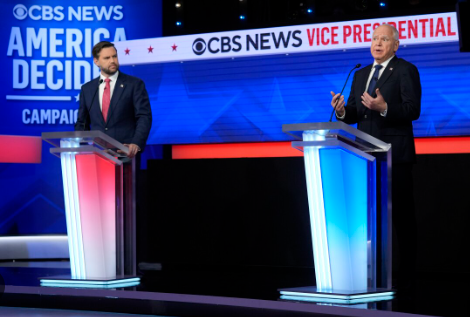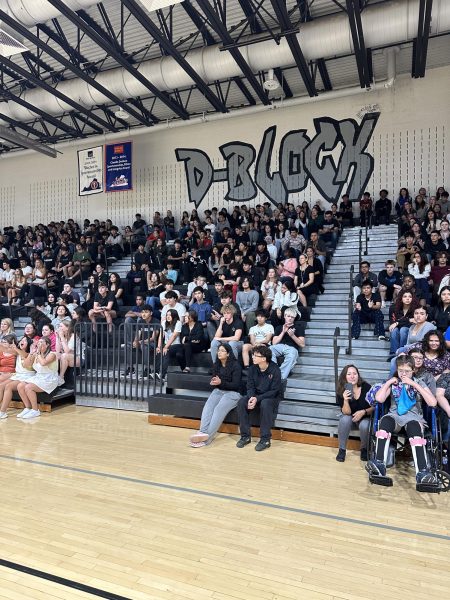Time to Make Parking More Sustainable
A simple plan will help the traffic at Dominion, as well as reduce the greenhouse gas emissions.
Students line up to leave Dominion as car after car has just one student in it.
After school at Dominion High School is a battleground of sprinting students, swerving drivers, and endless lines of idling cars, many of them with just one student sitting inside. The morning is not much better, when lines of cars are so backed up that administration has to hold the attendance due to a large number of late students caught in traffic. Implementing just one solution could not only reduce Dominion’s parking lot congestion, but also help LCPS limit greenhouse gas emissions.
Loudoun County Public Schools, which boasts a commitment to establishing “sustainable initiatives” and providing “a new perspective for implementing sustainability throughout the LCPS community,” should promote carpooling and the ownership of hybrids/EV’s through a discount in annual parking permits.
Each parking permit costs $200 per year, or $100 per semester. Incentivizing the ownership of electric vehicles with a discount of 25% of school parking passes ($25 per semester, or $50 per year) would help students whose families have invested in environmentally beneficial technology see their choice rewarded in schools, and motivate any families who might be interested in buying a new car to choose an EV.
In addition, a system that persuades students to carpool would decrease the intensity of parking lot backups and put less greenhouse-gas emitting cars on the road. As seen in many universities, LCPS could establish a tiered hierarchy of discounts based on the number of passengers in a car. Each additional passenger could, for example, result in a 25% reduction in parking permit costs.
It is important to note that teen drivers are limited to only one passenger under the age of 21, but any driver that has carried their license for at least one year can legally carry up to three additional passengers when traveling to or from school or a school-sponsored activity.
The easiest possibility of regular carpooling would be if siblings of similar ages drove together. Families with multiple children in high school would be able to save money by sending multiple kids to school in the same car.
As examples of a system after which LCPS could model their discounts, many college campuses have begun offering price reductions in parking for electric and hybrid vehicles. University of Maryland, is now offering a 20% “green vehicle discount” from their annual parking permit. City governments are also offering similar EV parking discounts. The United States government has been offering tax credits for electric and hybrid vehicles to pursue increased transportation sustainability.
Georgetown University is another college campus with a parking discount with a sustainable target, but instead of considering the type of vehicle, the university lowers permit rates based on the amount of passengers in the car. The cost per month decreases by more than 50% with only a two-person carpool, rendering the price of a permit to $0.00 with four or more passengers. The University of Virginia has a similar policy.
Carpooling allows for more people to commute with fewer cars on the road, leading to both a decrease in carbon emissions from combustion engine vehicles and less traffic congestion.
For a school system dedicated to being “a national leader in energy efficiency, conservation, and environmental stewardship,” LCPS should be open to the idea of parking discounts.

Maggie is a first year reporter for DHS Press. She wants to improve her writing, learn about journalism, and help keep the Dominion student body informed.







